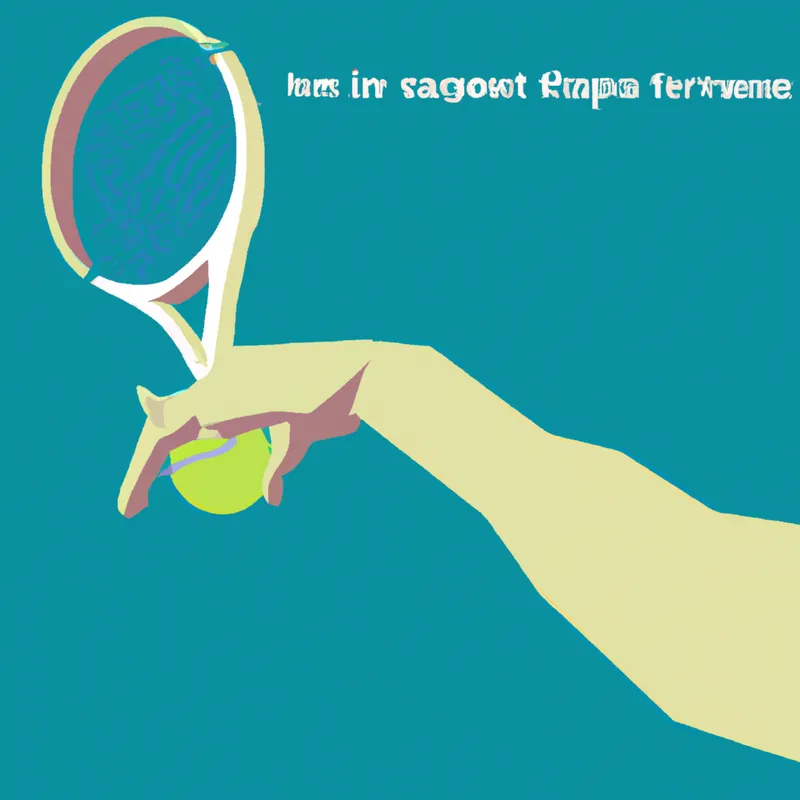Elevate Your Serve: Grip Techniques That Astound
The Impact of Grip Technique on Tennis Serve Effectiveness: A Comprehensive Breakdown
Tennis serves greatly influence success on the court. A powerful serve can set the match’s tone, offering a strong advantage from the start. However, many players overlook grip technique, a crucial aspect. This blog post explores how grip technique affects serve effectiveness and provides tips to improve your game.
Understanding Grip Techniques
Grip technique describes how players hold the racket. The grip choice significantly impacts a player’s serving ability. Players commonly use three grips: Continental, Eastern, and Western. Each grip affects speed, spin, and placement during serves.
Continental Grip
Many professional players favor the Continental grip. Players hold the racket like shaking hands, placing the index finger’s base knuckle on the second bevel. This grip supports versatile serves, including flat, slice, and kick serves. The Continental grip promotes natural wrist motion, enhancing power and control. Players can easily switch between different shots, making it ideal for serves and volleys.
Eastern Grip
In the Eastern grip, players place the index finger’s base knuckle on the third bevel. This grip offers more power for flat serves due to the increased racket face angle at contact. However, it limits spin potential compared to the Continental grip. Players who prefer flat serves may find the Eastern grip helpful, but mastering spin and control requires practice.
Western Grip
The Western grip is less common for serves but generates topspin effectively. Players hold the racket with the base knuckle on the fifth bevel, creating a more closed racket face at contact. This grip can produce a high bounce, challenging opponents, especially on clay courts. However, players must adjust their toss and timing since serve mechanics differ from the Continental or Eastern grips.
The Importance of Grip Technique in Serving
Your grip technique significantly influences your serve’s effectiveness. A well-executed serve aims for speed while requiring precision, spin, and placement. Understanding each grip’s nuances helps players leverage their strengths and minimize weaknesses.
1. Power Generation
Proper grip enhances power during serves. When players grip the racket correctly, they generate more speed. The Continental grip allows full arm and wrist extension, enabling a powerful snap at contact. Players mastering this grip often serve faster and with more authority, putting opponents on the defensive from the start.
2. Spin and Variation
Grip technique also plays a crucial role in spin and variation.
Conclusion
Grip technique profoundly impacts serve effectiveness. Players can enhance their serves by understanding and mastering different grips.
Below are related products based on this post:
FAQ
What are the different grip techniques used in tennis serves?
The three main grip techniques commonly used in tennis serves are the Continental, Eastern, and Western grips. Each grip affects the serve’s speed, spin, and placement, with the Continental grip being favored by many professionals for its versatility, the Eastern grip providing power for flat serves, and the Western grip generating effective topspin.
How does grip technique influence serve power?
Grip technique significantly affects serve power. A proper grip allows players to generate more speed during serves. For example, the Continental grip promotes full arm and wrist extension, leading to a powerful snap at contact. Players who master this grip often serve faster and with more authority, giving them an advantage over their opponents.
Can grip technique affect the spin and variation of a tennis serve?
Yes, grip technique plays a crucial role in the spin and variation of a tennis serve. Different grips allow players to produce various spins, such as flat, slice, or topspin. Understanding the nuances of each grip enables players to leverage their strengths and create challenging serves for their opponents.















Post Comment